My favorite tech products of 2014 [Joe]

Looking back on this last day of the year, I wonder how my daily tech changed so much since the first. On Jan. 1, 2014, my core computing comprised Chromebook, Nexus tablet, and Nexus smartphone. Midyear, I switched out to all Microsoft—buying Surface Pro 3 and Nokia Lumia Icon. While commendable the effort, Windows poorly fit my lifestyle. Today, I'm all Apple—13-inch MacBook Pro Retina Display with 512GB SSD, iPhone 6 128GB, and iPad Air 128GB. I can't imagine using anything else.
Following the lead of my BetaNews colleagues Mihaita Bamburic, Ian Barker, Alan Buckingham, Brian Fagioli, and Wayne Williams, I review my year in tech, and unlike 2013 focus on products that released during the year. I present my 2014 personal tech alphabetically, from company name, rather than order of importance—because they all matter. Note: While the list looks like four, it's five because the first is two combined.
Holiday 2014 gift guide for procrastinators

You lazy son of a bitch. It's Sunday, Christmas is Thursday, and you still haven't started shopping for gifts? Don't worry, we've got your ass covered with a quick, down-and-dirty gift bonanza. It's an eclectic mix because we have the attention spans of mice intoxicated by coffee and Krispy Kremes.
Lucky you. Many U.S. online shops grub for dollars by offering last-minute, free one-day shipping. Ha! There are some rewards waiting until Santa attaches reindeer to the sleigh. Read fast, because some of these are deals that won't last -- and when we say this grab bag is random, we mean it.
What tech changed your life in 2014?

As the year comes to a close, I'd like to ask you something: What was the best tech purchase you made (or received as a gift)? What about it is so good?
December is a time of reflection and preparation for a new year and when blogs and news sites fill space with stories looking back on the past 12 months and making predictions for the year ahead. I avoid writing the latter type but have opined about some companies' successes and failures, typically Apple, Google, or Microsoft. But if you'll oblige me, I would like my 2014 reflection(s) to be about you -- to make you the star.
Google can count many blessings this Thanksgiving
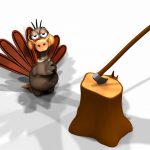
While I keep the list short this year, it wouldn't be U.S. Thanksgiving without my writing about gratitude, and why some tech company's executives, employees, and partners should prostrate and pray "Thanks".
Let's start off with Google, which continues a great run that started with Larry Page's return as CEO in April 2011. If he's not all smiles this Turkey Day, someone should slap that man aside the head. I could tick off a hundred things for which he should give thanks. For brevity's sake, so you can get back to the big game and bigger bird, I select some things that might not come to mind.
WTF? You can preorder Black Friday gadget deals

Cough. Choke. Collapse. That's me nearly needing the Heimlich maneuver during breakfast while looking over Samsung Black Friday deals. You can preorder them. Seriously. What the frak is that?
The routine started all so innocently. Samsung sent a promo email, and I curiously clicked the picture of a Chromebook and "Reserve Computing Deals". The webpage screenshot says all you need to know. You can, today -- as in right this very minute -- preorder either Samsung Chromebook 2 for assured savings ($20 or $50) between November 27 and December 1 for one and until the 27th for the other. I understand that Black Friday is late-month this year, but, c`mon, beat me with a sack of cash, sales preorders?
I would use Nokia Lumia Icon, if not for Windows Phone

Over the weekend I started to seriously review my photos from Comic-Con 2014. Goddamn, there are some good ones—each and every one taken with Nokia Lumia Icon, which is essentially identical to the 930 model reviewed by colleague Mark Wilson. He panned the device because of Windows Phone 8.1; I'm in love because of the camera. But sometimes love is lost, and regretted. My sister has the Icon now.
I lug around iPhone 6, which camera by every measure that matters to me is inferior but one—startup shooting speed. Apple's shooter can't compete with the Icon. Fanboys will disagree, but, hey, they always will. The difference isn't fewer megapixels—eight compared to 20—but the intelligence and usability baked into camera and editing apps, lens, sensor, and choices the device makes when auto-shooting.
Amazon Echo Booms
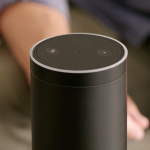
I so requested to buy Amazon Echo, which promises to bring Star Trek-like responsive computing to the home. The cylindrical device, announced today, is a Bluetooth- and WiFi-enabled speaker that responds to users' questions. Just say "Alexa" and ask something. "What's the weather?" "What is the largest dinosaur?" This is how search information should be, assuming Echo resounds as strongly as Amazon's product information and demo video claim.
Touchless interaction is by no means new. Apple got the jump with personal assistant Siri, which responds to requests and commands on iOS devices. Google Now, available on multiple platforms, is far superior, and Windows Phone now has Cortana. All three cloud-based touchless-response systems make your voice the primary user interface. But Echo, like the Moto X smartphone, is always listening, such that the interaction is almost completely hands-free. That's the difference.
Why Mac sales are up, when PCs are down
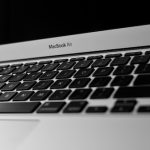
On May 15, 2001, while previewing the first Apple Store to analysts and journalists, then CEO Steve Jobs boasted: "Apple has about 5 percent market share today", but the remainder "don't even consider us". Jobs exaggerated, and not for the first time, seeing as how Mac global share was more like 2 percent. But the ambition, to use the retail shops to "double our market share", was achievable. Three years following his death, with 10-percent long ago reached in the United States, something more startling occurred: During calendar Q3 2014, Apple moved into fifth place for global PC shipments, according to IDC. The question is why?
I have wondered for weeks, and waited until Apple's quarterly earnings report before writing an analysis. By my math, the average selling price of Macs was about $1,200 -- that in a PC market where sales are sluggish, at best, except below $300 selling price. Yet, according to financial disclosures, Apple shipped a record 5.5 million Macs, with units up 21 percent annually and 25 percent sequentially and generating $6.625 billion revenue; that's an increase of 18 percent and 20 percent, respectively, for the same time periods. Who in the hell is buying these things, and for so much money? The answer may surprise you.
I need your advice! Should I get basic cable or keep the cord cut?

In July, connected TV service went dark in the Wilcox household, as we pulled the plug on AT&T U-verse and switched to Cox Internet. That reduced our monthly bill from about $130 to $59.99 exactly; there are no taxes or surcharges applied to the Net. Now Cox tempts with a compelling offer: Add local channels and HBO or STARZ, with no-cost HD set-top box for another $9.99 month. Installation is free, and there is no contract. Price is good for 12 months. Should we?
Cox promises 44 channels, plus either of the premium channels (I want HBO). But, realistically, that means 10, since we only watch HD, plus the "Game of Thrones" channel. We already receive five over the air using a Mohu Leaf 50 HDTV antenna, which I have to review.
Apple shouldn't sell iPad like toothpaste
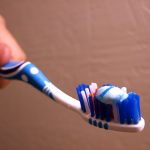
Sarah Perez makes the point before I could (oh lazy me): "Apple announces too many iPads". That's the most sensible take on tablets launched last week, and over the weekend copycat stories started posting. Strange thing, there's nothing new about iPad configuration complexity. The number of base SKUs, while way too many, increases by just two.
I first harped on Apple's "too many problem", following iPad mini's introduction two years ago, observing: "It's a crowded lineup, with overlapping features and prices not seen from Apple since the early- to mid-1990s". Crowded is understatement. The mini jacked up the number of basic configurations from eight to 14. However, when looking at all available SKUs, including two colors and carrier-specific models, the number jumped to 54.
If Samsung stumbles, will Android fall down?

The world's largest smartphone manufacturer is troubled. Overnight, Samsung warned that its third-quarter operating profit could fall as much as 61.8 percent because of weakness in its largest division, mobile, from which phones account for about 60 percent of company profits. Smartphone shipments are up slightly, but the money they generate is down substantially.
For Google, the news is a mixed blessing. In April 2012, I warned that "Google has lost control of Android" -- Samsung's dominance with customized versions of the mobile operating system being major reason. Big G effectively responded by separating core apps and services from Android, spreading them out across versions, and better unifying the user experience. Still, Samsung's TouchWiz UI is the main way tens of millions of people experience Android every day. The South Korean company's problems could eventually be good for Google, but will they benefit Android or pull it down?
iPhone 6: an honest review
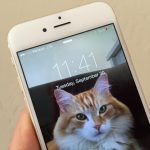
I preordered Apple's new smartphone on September 12, and it wasn't easy. Few months back, I went "Microsoft All-In" for the summer, purchasing the Nokia Lumia Icon on contract from Verizon. So I didn't qualify for the discounted, upgrade price. But when there's a will, there's a way -- and a generous family member helps make something special happen.
My iPhone 6 review begins with such disclaimer. Like iPad Air, I paid for the device. Apple didn't send me a review unit, but I did ask, and I am not on the preferred list of writers who get early access to "iDevices" and who presumably are more likely to rave. Such qualification is necessary, because iPhone 6 is an exceptionally satisfying handset, and I don't want to be mislabeled fanboy for stating such. That's a brash conclusion coming from someone abandoning a competing smartphone with better specs and satisfying user experience.
8 reasons why Apple iPhone 6 and 6 Plus 'bendgate' is a good thing
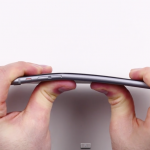
The newest Apple "gate" is upon us. Many users complain that their new iPhones bend in the pants. Flexible display is a compelling technology, when designed that way. Surely, Apple doesn't want customers, ah, adapting iPhone 6 and 6 Plus designs in their pockets. Someone call the lawyers! But wait, who sues whom? Apple for buyers violating its design patents, or users complaining the handsets are flawed? Oh, these legal quagmires are treacherous!
Personally, I'd like to do a gallery showing of bent iPhones as art. Maybe I can open a museum of pop culture here in San Diego. My point: There are some unseen benefits to Apple's apparent iPhone fiasco. Here, I present eight -- and surely there are many more. Please decorate our comment gallery with your additions.
If iPhone 6 or 6 Plus bends, it's YOUR fault

Aluminum is a soft metal. Anyone who has used tinfoil to wrap up food should know this. As such, there are ways you really shouldn't handle a personal device made of the metal. Front or back pocket is a no-no without a case, at least. Better: Not at all -- or use a plastic phone made by Motorola, Nokia, or Samsung.
That's my short response to colleague Mihaita Bamburic's analysis: "If your iPhone 6 or 6 Plus bends, it's Apple's fault" He is "inclined to believe that Apple did not thoroughly test its new devices, based on my engineering background". You read that right. Mihaita may be a prolific writer, but his real profession is engineering. I trust his judgment but nevertheless disagree. If iPhone 6 or 6 Plus bends, it's your fault.
Pricey Macs and cheap Chromebooks squeeze Windows in the middle

No one likes to be in the middle seat on airplanes, right? It's a metaphor appropriate for retail -- and the place where Windows sits in NPD's final assessment of U.S. 2014 back-to-school sales growth. Chromebook continued a nearly two-year unit-sales surge, while Macs made last-minute gains, and Windows PCs survived only by aggressive tactics that pulled down average selling prices. For Microsoft and its partners, the strategy cut market share losses but at great hidden costs.
Back-to-school 2013 was a bloodbath, with unit sales through U.S. channels dropping by 2.5 percent annually -- a loss that pulled down overall PC sales during first half of last year. For 2014, sales are up about 3 percent overall, or 3.5 percent for notebooks and flat for desktops.
Joe's Bio
Joe Wilcox is BetaNews executive editor. His motto: Change the rules. Joe is a former CNET News staff writer, JupiterResearch senior analyst, and Ziff Davis Enterprise Microsoft Watch editor.
Ethics StatementBetaNews, your source for breaking tech news, reviews, and in-depth reporting since 1998.
© 1998-2025 BetaNews, Inc. All Rights Reserved. About Us - Privacy Policy - Cookie Policy - Sitemap.
